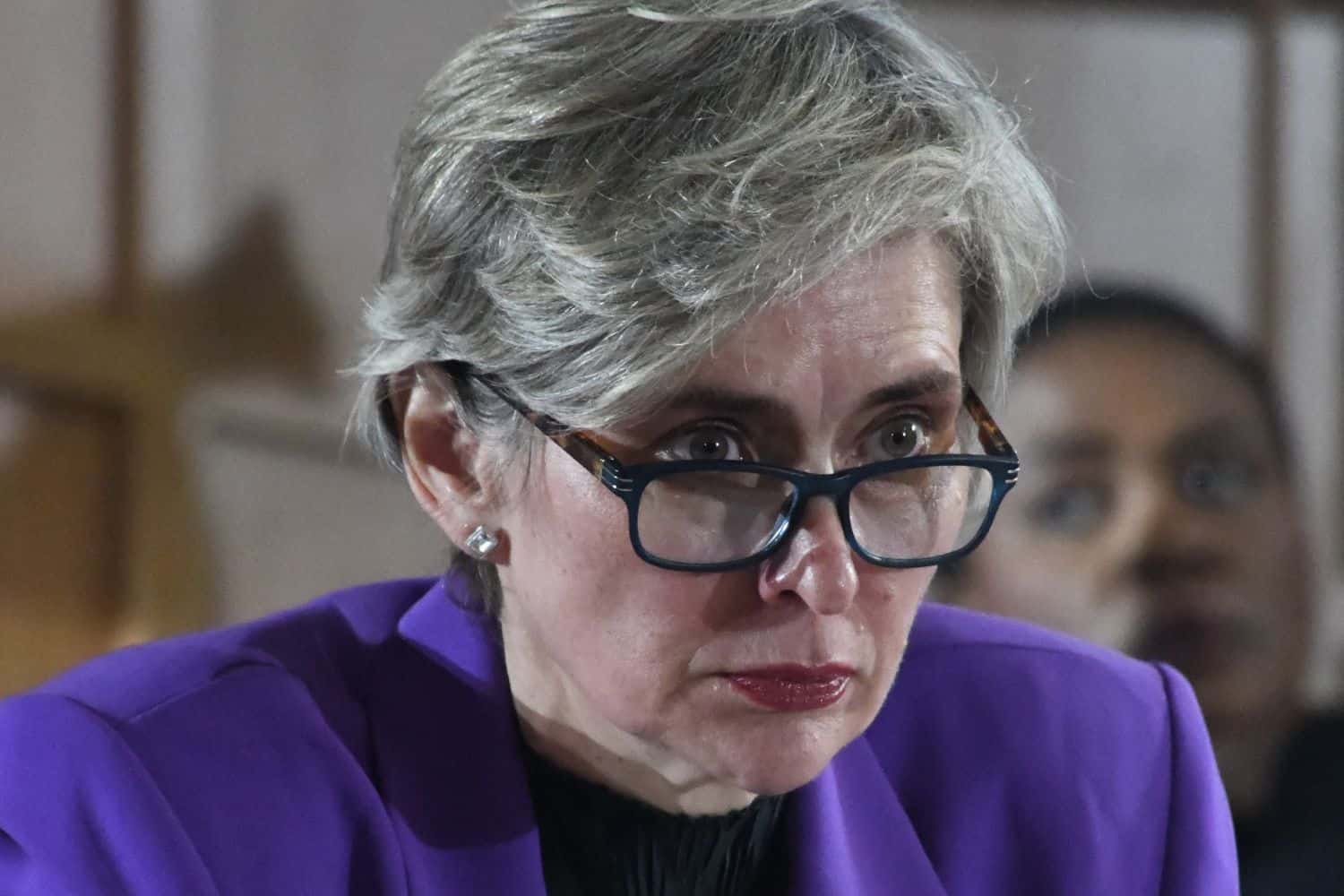Parliament could have acted sooner by calling the police's management to account, says Van Rooyen, head of the legal division at Saps.

The third witness told the Madlanga commission on Thursday that parliament failed to fulfil its oversight responsibilities in investigating allegations made by KwaZulu-Natal (KZN) police commissioner Nhlanhla Mkhwanazi.
Petronella Margaretha van Rooyen, head of the legal division within the South African Police Service (Saps), appeared before the judicial commission of inquiry on its sixth day of hearings in Pretoria.
The commission is probing Mkhwanazi’s allegations of criminality, political interference, and corruption within the law enforcement and judicial system made during a media briefing on 6 July, in which he accused Police Minister Senzo Mchunu of being involved with crime syndicates.
Mkhwanazi had initially raised his concerns with parliament’s Portfolio Committee on Police (PCOP) during a March meeting before going public.
Saps legal head testifies at Madlanga commission
During Thursday’s proceedings, Van Rooyen — who oversees governance, legislation and policy within Saps — said the parliamentary committee’s failure to act on Mkhwanazi’s allegations was a breach of its mandate.
“I believe that the issue that General Mkhwanazi publicly announced on the 6th of July was previously reported during a PCOP meeting in March, if I remember correctly.
“So the fact that the portfolio committee didn’t act on that is in my mind a failure of their mandate.
“Even if they initiated an investigation, called the management of the police to come and explain, that we’d already have been an exercise of oversight on their part to ensure that the matter received attention,” she said.
ALSO READ: Ad hoc committee to decide on Kohler Barnard after Mkhwanazi claims at commission
Van Rooyen highlighted that although an ad hoc committee had been established to investigate the claims, parliament could have acted sooner by calling Saps’ management to account.
“Keep in mind that it’s an ad hoc committee, so it cuts across not only in respect of the portfolio committee of police.
“There’s also members of the portfolio committee on justice, but it is part of their constitutional mandate or the legislative mandate of oversight.
“I think the issue raised by [Madlanga] commissioner [Sandile] Khumalo, as I understood it, was about the timing; the fact that it was reported,” she told the commission.
Watch the inquiry below:
She added: “They have the power to call the management to account, to come and explain.
“It’s easy for me to say because I’m not a member there, but in my view, it would have been appropriate for the portfolio committee to call the management a week or two weeks after that incident to account, to say, give a report on what is happening… what is the facts in relation to the allegations that was made by General Mkhwanazi in that meeting.
“That would have been part of a mandate and I believe expected in the execution of the powers to conduct oversight, to call the department to account and to explain what the situation was.”
Ad hoc committee hearings
The ad hoc committee, which operates separately from the Madlanga commission, is scheduled to begin its public hearings on 7 October, with Mkhwanazi as the first witness.
Other witnesses expected to testify include Mchunu, National Police Commissioner Fannie Masemola, Deputy National Police Commissioner Shadrack Sibiya, and Acting Police Minister Firoz Cachalia.
READ MORE: Subpoena route against Mkhwanazi ‘not desirable’, ad hoc committee decides
The committee also intends to call President Cyril Ramaphosa, Crime Intelligence head Dumisani Khumalo and former Hawks boss Godfrey Lebeya.
It is expected to meet on Friday to discuss its way forward.
Disbanding of political killings task team
Van Rooyen later told the commission that Mchunu had no authority to disband the political killings task team.
On Monday, National Police Commissioner Fannie Masemola revealed that Mchunu had sent him a letter on 31 December 2024, instructing that the task team was no longer adding value in the fight against crime.
However, Van Rooyen said this instruction fell outside Mchunu’s mandate, as it amounted to an operational decision.
“It was clearly an instruction by the minister. The question is whether it was a lawful instruction or direction that the minister used.
“Did the minister have the power to direct or command the closure of the task team that was investigating crimes, and in my view, he did not have that authority.
“The decision of the minister to close the task team that was responsible for the investigation of a crime that, in my view, fell outside the mandate of the minister,” she said on Thursday.
She explained that the minister’s role is to provide national direction in line with national policy.
NOW READ: Masemola says Mchunu’s anger over ‘police doing a good job’ was ‘quite strange’






!['It looks like a Star Wars movie', flood damages to Kruger National Park is substantial, minister says [VIDEO]](https://media.citizen.co.za/wp-content/uploads/2026/01/Kruger-National-Park-300x200.jpg)